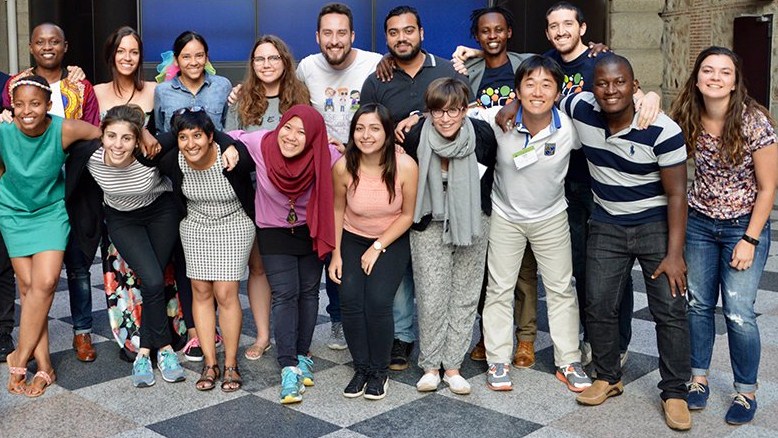We some grounding principles that work together to allow us to drive change for young people, communities, and partners. Here's how these principles tie into our Gender and Social Inclusion policy:
Positive youth development:
In everything we do, we engage young people as partners—along with their families, communities, and/or governments. Our approaches build skills, assets, and competencies; foster healthy relationships; strengthen the environment around young people, and transform systems. We believe that achieving lost-lasting social inclusion outcomes requires addressing all four of those domains.
Evidence-based learning:
ICRRD is committed to using evidence and knowledge to inform programs and achieve results that improve the lives of all young people. Institutional data collection and disaggregation requirements allow us to monitor and evaluate the effectiveness of our programs for distinct populations.
Social inclusion:
We push to address the needs of all young people throughout our initiatives. Our Gender and Social Inclusion policy operationalizes this third grounding principle.
Local ownership:
While well versed in global best practices, We don't presume that an approach that has succeeded in one place will work in another. Our Gender and Social Inclusion policy prioritizes the expertise of local partners in contextualizing GESI to make sure programs do no harm in the pursuit of more equitable outcomes.
Equal access
It means all young people have the same opportunity to participate in our projects and are protected against unintentional negative impacts. Informed by social inclusion analyses, we design projects to amplify opportunities and mitigate risks. Additional supports young people receive can include stipends to offset lost income; training at multiple times of day, including outside typical work hours; and childcare for participating young parents.
Equal outcomes
It will ensure that all young participants see similar results, such as income gains or employment placement rates. Projects designed for equal outcomes direct resources to young people who may need additional support in order to achieve an outcome similar to another participant.
Transformed environments
The feature will improve equity and inclusion in the broader context. Local team members and partners, determine the degree to which projects can challenge existing laws, rules, regulations, norms, customs, beliefs, and practices. We know that opportunities for transformation present themselves differently in different contexts. Inclusion efforts vary across contexts, but ultimately we are committed to doing no harm and ensuring all individuals are treated with dignity and respect.









